
Key Takeaways
- Cycling is filled with thrilling and memorable moments.
- The sport has a rich history of legendary athletes and achievements.
- These stories showcase the remarkable feats of endurance and determination.
Bike wheels whir, and history is made with each pedal turn—let's talk monumental cycling moments!
Bicycling has given us some real edge-of-your-seat thrills, hasn't it?
Picture those heart-pounding sprints to the finish line or the awe-inspiring comebacks that left us cheering.
You're witnessing a legacy of grit and triumph, one where names like Eddy Merckx and Lance Armstrong resonate as legends who have pushed beyond the boundaries.
Why should you listen to us?
Well, we've waded through the record books and looked back on races that have stopped the world in its tracks.
We bring this all to you, not just as enthusiasts but as diligent chroniclers of two-wheeled history.
You're in for stories of human endurance, strategic masterminds, and sheer indomitable will—all from the world of cycling.
Eddy Merckx's Domination (1969-1974)

Hey, have you ever heard of Eddy Merckx?
Some say he's the greatest cyclist of all time.
Let's pedal through his era of sheer domination from 1969 to 1974.
Imagine this: you're witnessing one of the most impressive streaks in cycling history.
In 1969, Merckx charged through the Tour de France, not just winning but doing so with an eight-minute lead.
That's like finishing your morning commute before the coffee even kicks in!
Now, picture this happening in the grueling mountain stage at the Col de l'Aubisque—talk about strong legs!
During these years, Merckx didn’t just win races; he collected them like souvenirs.
His milestone victories include:
- Five Tour de France titles
- Victories in all five of cycling's monuments
- The 1974 World Championship
You've got to remember, these are not just any races; they are the creme de la creme of the cycling world, where only the best of the best dare to compete.
Rik Van Looy was already a legend, yet Merckx zipped past, earning the title 'The Cannibal' for his insatiable appetite for wins.
His triumph at the 1974 World Championships left a mark.
Poor Bernard Thévenet, despite being the home crowd favorite, just couldn’t catch a break against Merckx's prowess, and that was just a sneak peek into their rivalry that spilled over the following year.
And Flanders?
In 1969, Merckx won there too—right at home.
Just imagine the cheers!
So, next time you're on two wheels, think about what it must have felt like to be Merckx, winning left and right from '69 to '74, and making bicycle history one pedal stroke at a time.
Impressive, right?
Lance Armstrong's Comeback (1999-2005)

Cancer survivor to Tour de France legend, Lance Armstrong's story is like a page from a thrilling novel, isn't it?
Imagine, you're Lance Armstrong.
You've just overcome a harrowing battle with testicular cancer.
What would you do next?
Hang up your cycling cleats?
Not if you're Armstrong.
Instead, you gear up for the most epic comeback in cycling history.
After his diagnosis in 1996 and subsequent recovery, Armstrong made a breathtaking return to professional cycling.
Let's chat numbers.
The man didn't just return; he dominated.
From 1999 to 2005, he won the Tour de France a record-breaking seven consecutive times.
Think about that — seven golden trophies on your mantle!
It’s wild!
Those victories, each remarkable in its own right, carved his place into sports history.
Here's the thing, though, every one of those wins wasn’t just for him.
They sent a loud and clear message of hope to every person fighting a personal battle.
Every push of the pedal, every bead of sweat, told a story of unyielding determination.
Now, while these triumphs were monumental, your spidey senses are probably tingling about the controversy that followed.
Yes, Armstrong's career later faced a thunderstorm of doping allegations, but let’s not forget the impressive display of resilience and skill during those seven Tours, right?
So there you have it, a slice of the Armstrong saga.
Champion, survivor, and the man with a Hollywood-scale comeback – it’s a story you just couldn't make up if you tried.
Now saddle up, and channel that Armstrong determination on your next ride.
Who knows what your comeback story might be?
Greg LeMond's Tour de France Victory (1986)

Hey, did you know that in 1986, an American cyclist made history in France?
Yup, you guessed it — Greg LeMond became the first American ever to win the Tour de France!
Now, isn't that something to cheer about?
Let me take you on a quick ride through that memorable event.
In the mid-80s, cycling was dominated by Europeans, and the thought of an American rider taking the crown was almost unimaginable.
But Greg LeMond, 25 years young, pedaled through the skepticism and clinched the yellow jersey.
Here's a fun nugget: LeMond's teammate was none other than Bernard Hinault — a legend with five Tour wins to his name.
Talk about friendly rivalry, right?
Their team dynamics had everyone on the edge of their seats.
Forget reality TV; this was the drama sports fans were hooked on!
So, how did LeMond end the 1986 Tour de France?
In first place, with crowds cheering and history books rewriting.
Can you imagine the look on his face crossing that finish line?
- Team: La Vie Claire
- Age: 25
- Nationality: American
- Previous Year's Finish: Second to Hinault
You should've seen it — racing through mountains and across France with determination in his eyes.
LeMond's victory was not just a win for the US, but a moment that inspired cyclists worldwide.
This win was proof that passion, teamwork, and a little bit of friendly competition could propel you to the top of the world — or, in this case, to the top of the cycling world!
So, next time you're on your bike, remember Greg's pedal strokes that etched his name in the annals of sports history.
Who knows, with a bit of inspiration and a lot of perspiration, maybe you could be the next cycling sensation!
Gino Bartali's 1948 Tour de France Win

Have you ever wondered about the impact a bicycle race can have beyond sports?
Picture Italy, just after World War II, a nation riddled with tension, looking for a glimmer of hope.
In comes Gino Bartali, a cyclist whose pedaling prowess not only wowed spectators but also had a calming effect on a politically charged atmosphere.
Let's take a quick spin through his memorable 1948 Tour de France victory, shall we?
Bartali's 1948 Triumph:
- Dates: July 30 to August 25, 1948
- Winning margin: 26 minutes and 16 seconds
- Remarkably, Bartali's win came a full 10 years after his first Tour de France victory in 1938—a feat unmatched by any other cyclist.
The 1948 race was more than just a test of stamina and speed; it marked a moment when sports transcended boundaries and became a symbol of national unity.
Sure, the climb through the Alps and Pyrenees seemed Herculean, but it was Bartali's steadfast spirit that truly captivated a nation.
Can you imagine the roars of the crowd as Bartali donned the yellow jersey and cycled his way into the history books?
He didn't just race; he brought a country teetering on the edge of political unrest back to a sense of pride and collective identity.
With each pedal stroke, Bartali was writing a chapter in Italy's recovery story, proving that sometimes, two wheels can indeed steer a nation towards peace.
His legacy lives on not just in his athletic feats, but in the unity he inspired during a time Italy needed it most.
Who knew that the humble bicycle could carry such weight, in more ways than one?
Annie Londonderry's World Tour (1894-1895)

Can you imagine pedaling your way into history?
That's exactly what Annie Londonderry did back in the 1890s.
Breaking through the limits of her era, Annie Londonderry became a true trailblazer as the first woman to cycle around the globe.
This remarkable feat began in June 1894, when she waved goodbye to Boston, her home city.
With just her bicycle and a pioneering spirit, Annie set off on an adventure that would take her through countries and across oceans.
How did she pull it off?
Well, for starters, Annie was no ordinary cyclist; she started with just a few lessons under her belt!
Her journey wasn't just about the miles covered; it was a statement about female independence and capabilities.
- Departed: June 25, 1894
- Completed: September 12, 1895
- Duration: 15 months
Expectations were against her, but Annie pedaled through the skepticism.
Her itinerary?
A mix of land travel and ship passages.
Despite the fact that some stretches were by sea, she cycled her way across vast lands, leaving audiences in awe.
She not only completed the journey but did so with two weeks to spare before her deadline.
This incredible chapter in bicycling history isn't just about accomplishing an ambitious goal; it's about shattering the glass ceiling with two wheels and sheer determination.
Annie's story, detailed in Peter Zheutlin's book, "Around the World on Two Wheels," continues to inspire cyclists, both women and men, to this day.
Don't you find it amazing how some spokes and a frame can lead to such a monumental shift in the way we view what's possible?
Annie Londonderry's ride is a testament to the power of courage, tenacity, and the bicycle as a symbol of freedom.
Fausto Coppi and Gino Bartali's Rivalry (1940s-1950s)
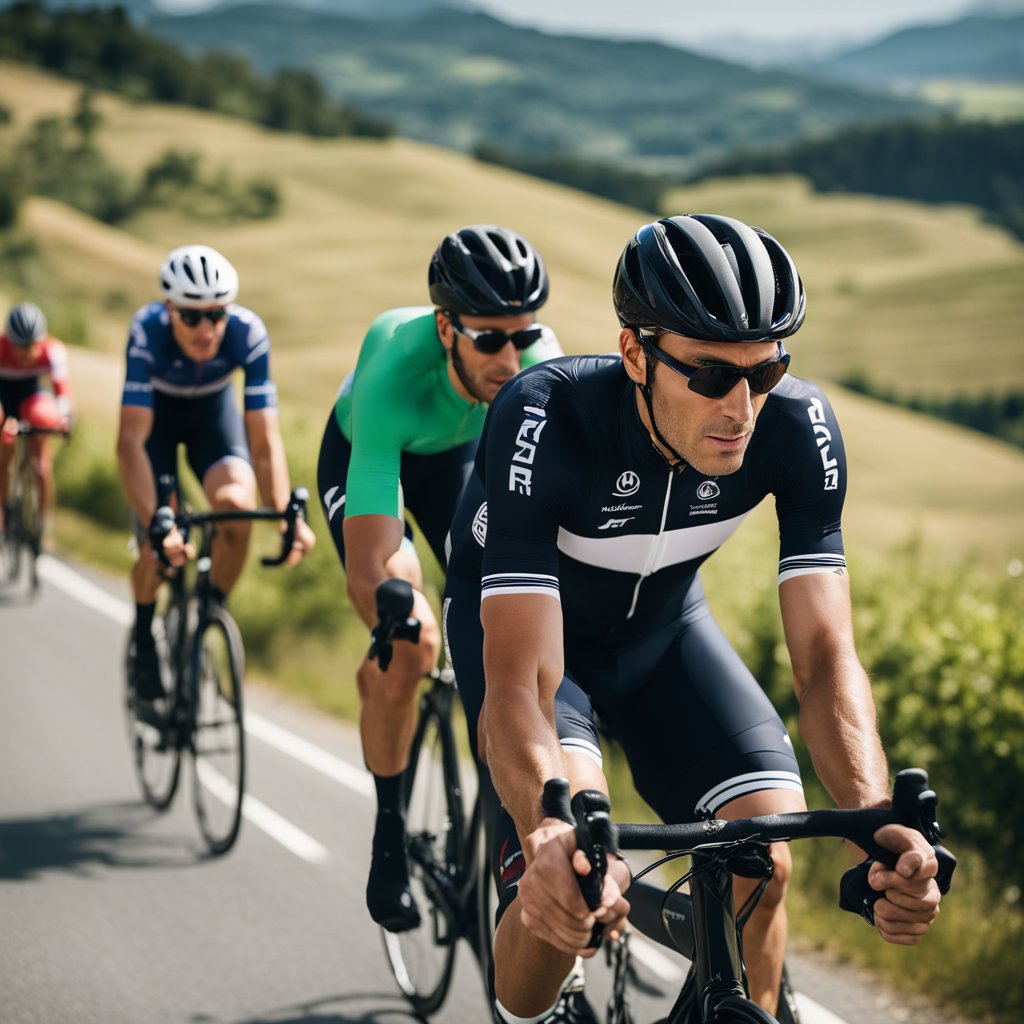
Have you ever felt the rush of a cycling race?
Imagine that, but turned up to eleven.
That's what you'd have witnessed during the rivalry between Fausto Coppi and Gino Bartali in the 1940s and 1950s.
These Italian cyclists didn't just share a track; they shared an explosive relationship that had everyone talking.
Fausto Coppi, a young, assertive rookie, entered the scene with a confidence that rattled cages.
In 1940, at the fresh age of 20, Coppi became the youngest cyclist to win the Giro d'Italia.
Now that's a cause for buzz!
On the other hand, Gino Bartali was the seasoned pro, the established hero of Italian cycling.
His career was briefly sidelined by World War II, but in true champion fashion, he bounced back to win his third Maglia Rosa, a whole decade after his first.
Talk about longevity!
Their differences were not just reputational.
Bartali was considered the conservative, the traditionalist, while Coppi was seen as the modernist, the bright new talent.
When they raced, it wasn't just about who would cross the finish line first—it was a clash of ideals, a battle for the soul of cycling.
Their duels were legendary:
- Bartali's tenacious spirit
- Coppi's raw talent
- Races that went down to the wire
It was in these moments, these tire-to-tire battles, that cycling history was written.
And hey, whether you side with the cool, calculated experience of Bartali or the fiery ambition of Coppi, you've got to admit—rivalries like this are what make sports truly unforgettable, aren't they?
Chris Froome's Triple Crown (2017-2018)

Ever wondered who was the Grand Tour maestro a few years back?
Well, let me tell you about Chris Froome's phenomenal Triple Crown achievement during 2017 and 2018.
Imagine clinching the Tour de France, the Vuelta a España, and the Giro d'Italia one after the other.
Sounds Herculean, right?
But Chris Froome did just that!
2017 marked the year where Froome's dominance was undeniable as he won his fourth Tour de France.
But did he stop there?
Of course not.
He spun his way to victory in the Vuelta a España, showcasing a masterclass in endurance and strategy.
That win meant he was the reigning champion of the Tour and Vuelta simultaneously.
Impressive, huh?
Let's fast forward to May 2018.
At the Giro d'Italia, Froome faced a tough crowd and even tougher climbs.
But in a turn of events that had fans on the edge of their seats, he launched a daring 80 km solo attack on stage 19 to snatch the coveted Maglia Rosa—the leader's pink jersey.
With this, he didn't just win the Giro; he carved his name in history as the first cyclist since Bernard Hinault in 1983 to hold all three Grand Tour titles at the same time.
How's that for a bike legend?
In those moments, Froome wasn't just a cyclist—he was the embodiment of perseverance and ambition.
Tell me, have you ever seen such a display of cycling prowess on the winding roads of Europe's most grueling races?
Mark Cavendish's Sprinting Prowess (2008-2016)

Remember watching the Tour de France stages from 2008 to 2016?
If so, you've witnessed the thrilling blur that was Mark Cavendish crossing the finish line—first.
What made him so special during those years?
- 2008-2012: Cavendish became pro cycling's best sprinter. His acceleration, racing tactics, and sheer determination led to victory after victory.
- Tour de France: He amassed an incredible 30 stage wins over the years, making every sprint a heart-pounding experience for viewers.
- Physical Stats: Not the "big and chunky" type like the Usain Bolts of track, are we? Cavendish stood at 1.75m and around 70kg, just right to cut through the wind like a hot knife through butter.
- Competition: It wasn't a solo show; there were serious rivals like Andre Greipel, but Cavendish often edged them out, brilliantly showcasing his sprinting dominance.
So, what's your favorite Cavendish moment?
Was it a cleverly timed jump out of the pack, or maybe how he could seemingly find gaps that didn't exist?
This Isle of Man native wasn't just fast; he brought tactics, skill, and a bit of magic to each race.
And here's a fun tidbit: Despite being known for his cycling prowess, Mark was once referred to as a 'fat banker'—can you believe it?
Goes to show you, never judge a book by its cover, or a cyclist by a nickname!
From 2008-2016, Cavendish wasn't just winning—he was making history.
Did you get the chance to cheer for him during those adrenaline-soaked sprints?
Marianne Vos's Versatility (2006-Present)

Have you ever heard of a cyclist who can dominate any type of race they enter?
Well, you're about to get familiar with Marianne Vos, a name synonymous with versatility in the world of cycling!
Imagine tackling the muddy terrains of cyclo-cross, zooming on track cycling’s oval, and conquering the rigorous roads - all with equal prowess.
That's Marianne for you!
Why is Marianne such an icon?
Since her professional debut in 2006, she's not just been cycling; she's been rewriting history.
Here's a quick look at her mind-blowing achievements:
- Road Cycling: Marianne won the Elite Women's Road Race at the Road World Championships. She also claimed a staggering 30th career Giro d'Italia Donne stage victory by July 2021.
- Cyclo-cross: Her performance away from the tarmac is just as remarkable. Marianne has amassed several World Championship titles in cyclo-cross.
- Track Cycling: Oh, and let's not forget the velodrome, where she speeds around with such finesse and strength.
You've got to ask yourself, how does she do it?
It certainly doesn't hurt that people like you find her inspiring.
She's not just an athlete; Marianne is a figure that exemplifies what it means to never set limits on your potential.
In May 2024, it was noted how she's dominated every terrain she's touched for over two decades.
It's no stretch to say that Vos's career is far from over.
And isn't it thrilling to witness such an outstanding athlete's journey?
Keep your eyes peeled—this champion's story is still unfolding!
Jens Voigt's Determination (2010 Tour de France)

Have you ever heard the story of a pro cyclist who just wouldn't quit?
You've got to meet Jens Voigt, an embodiment of grit and determination during the 2010 Tour de France.
Remember that moment when he crashed and still found a way to finish the stage?
That's pure Jens for you!
So, what happened exactly?
Jens was rolling out on a particularly tough stage when fate hit him with a curveball.
The crash was tough, but Jens?
Tougher!
Refusing to throw in the towel, he did something you probably wouldn't expect a Tour de France cyclist to do.
Imagine this: a pro rider on a child's bike, pedaling his heart out to reach the finish line.
Yes, he actually borrowed a small yellow bike from a kid to continue the race.
No gears, no fitting frame, just sheer willpower.
Can you picture it?
This moment wasn't just epic; it was a spectacular display of the 'never say die' attitude Jens is revered for.
- Borrowed bike? Check!
- Unyielding spirit? Double-check!
- Becoming a fan favorite? Oh, you bet!
While Jens' encounter with the pavement wasn't a highlight anyone wishes for, his resolve to keep moving, no matter what, was truly inspiring.
Do you see why cycling enthusiasts still talk about this moment?
It's moments like these that make the Tour de France more than a race—it's a narrative of human endurance and passion.
Voigt's Stats in 2010 Tour de France:
- Two times wearing the yellow jersey
- Wings clipped on a tough stage
- 1 unforgettable borrowed bike story
So next time you're facing a hurdle, channel your inner Jens Voigt.
Grab any 'bike' life throws at you and just pedal on!















































































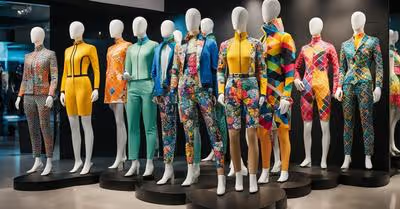




























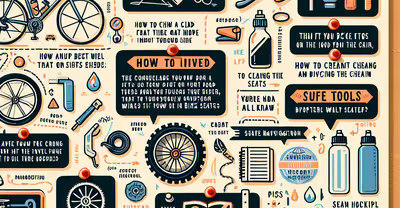


















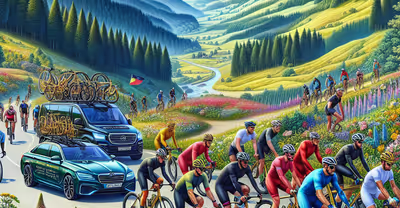







































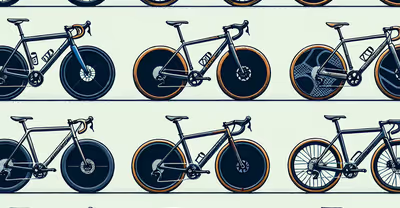

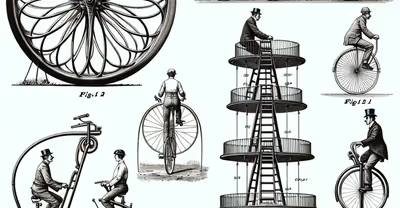




















































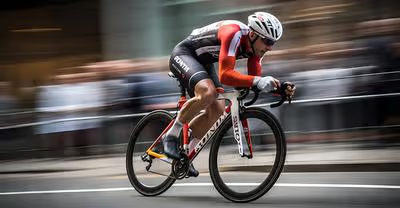































































































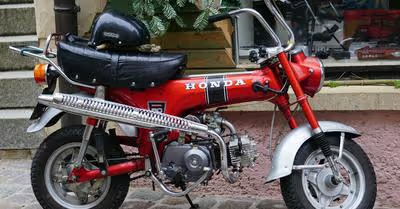












































































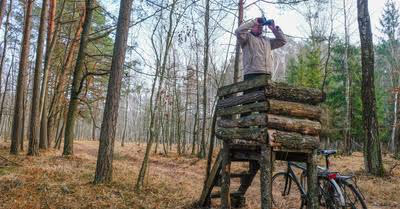















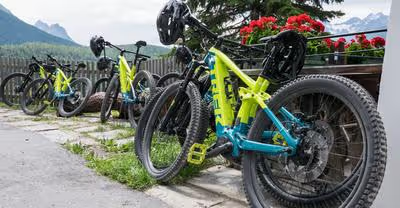





















































































































































































































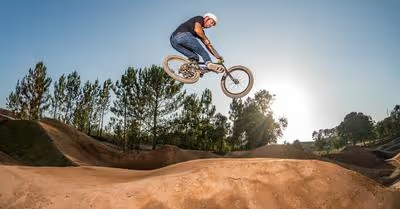








































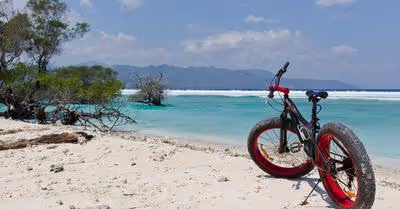


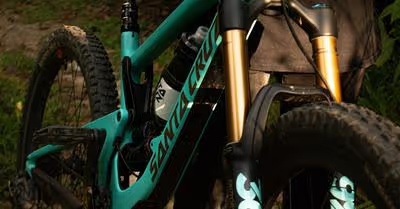








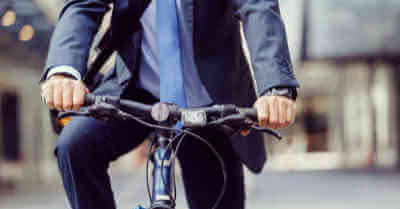









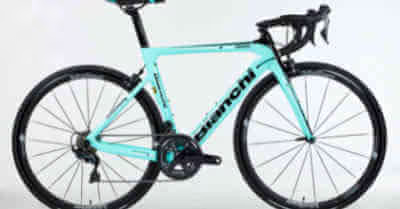


































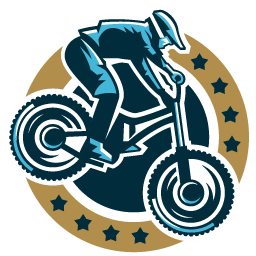
.avif)
